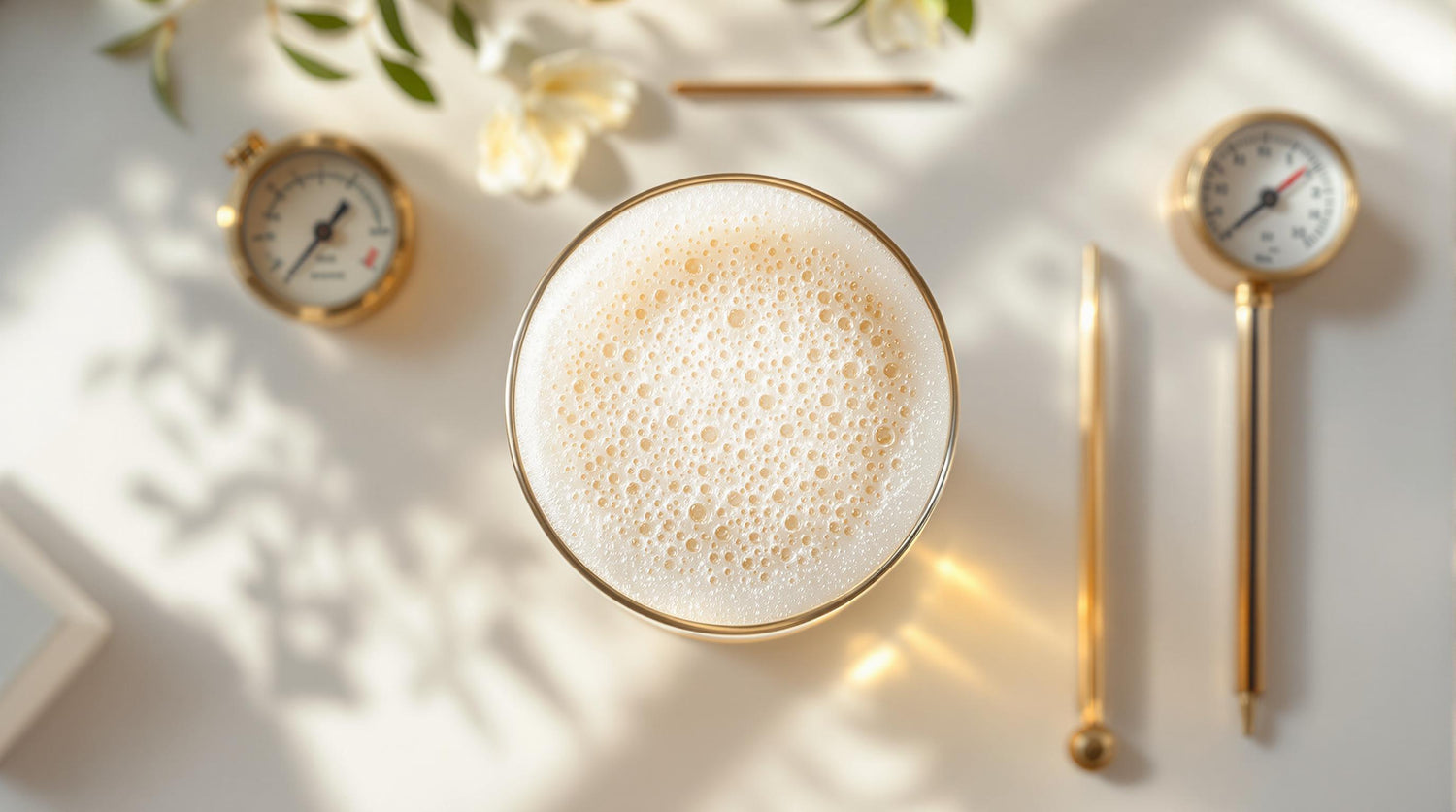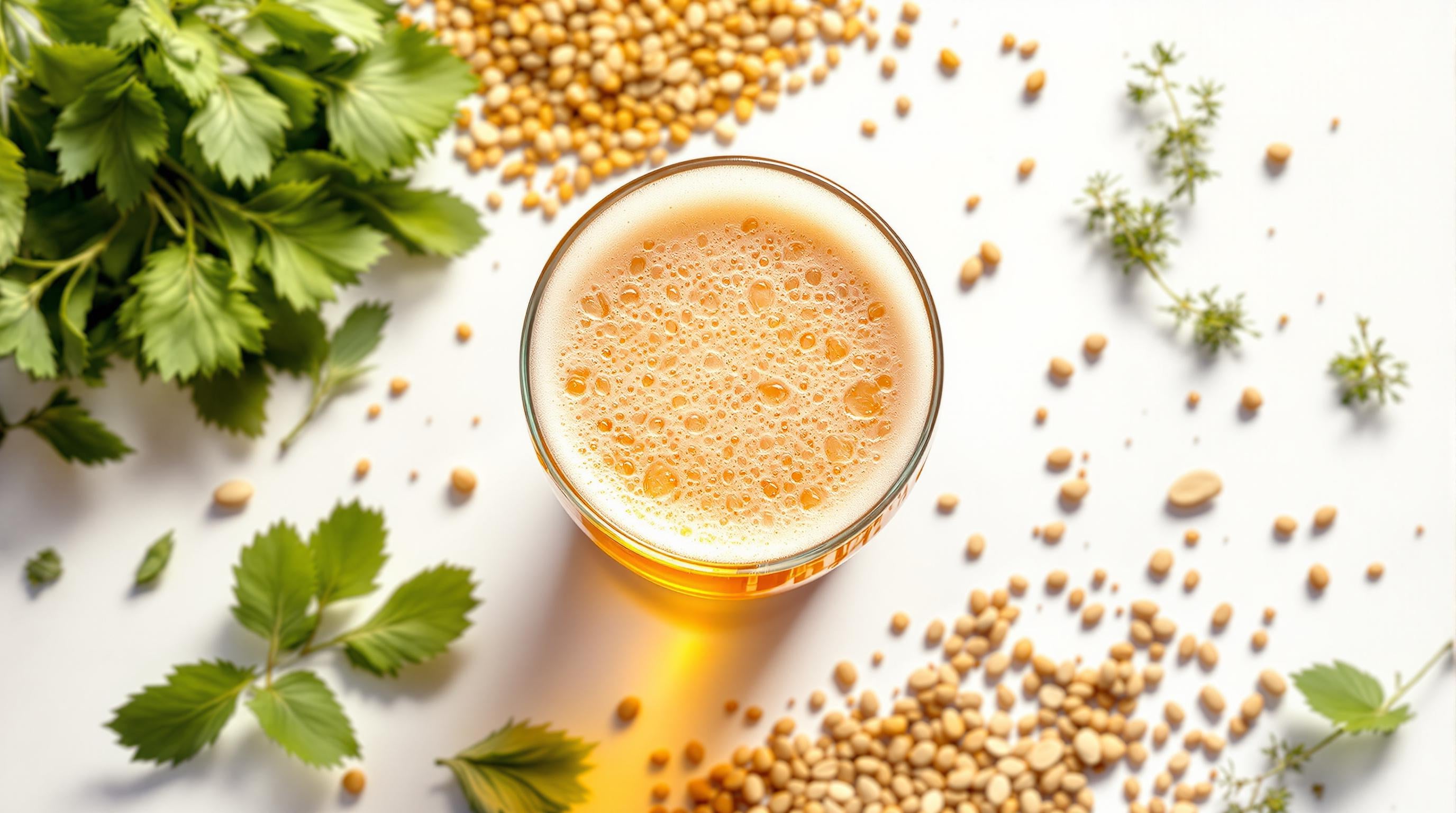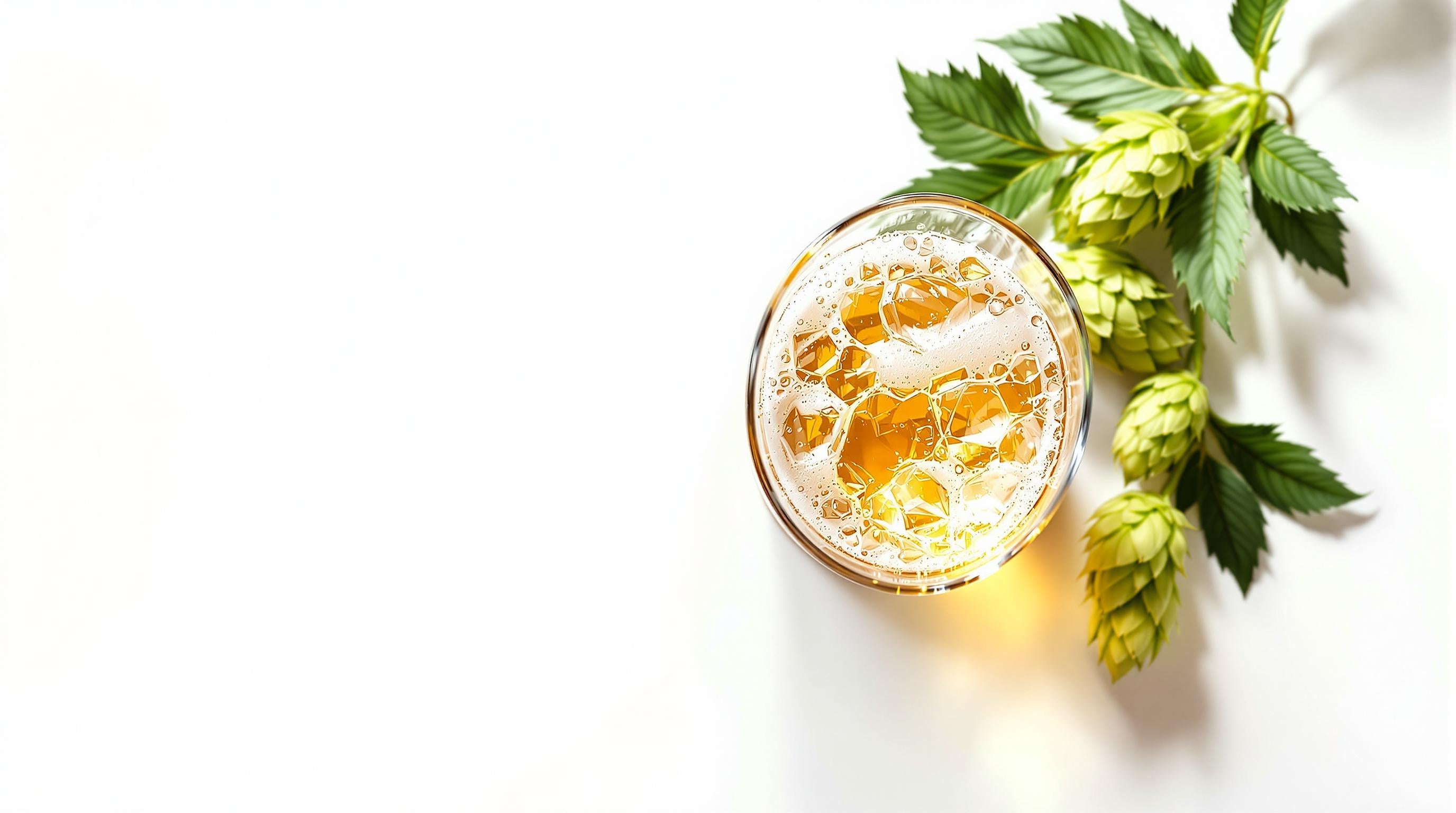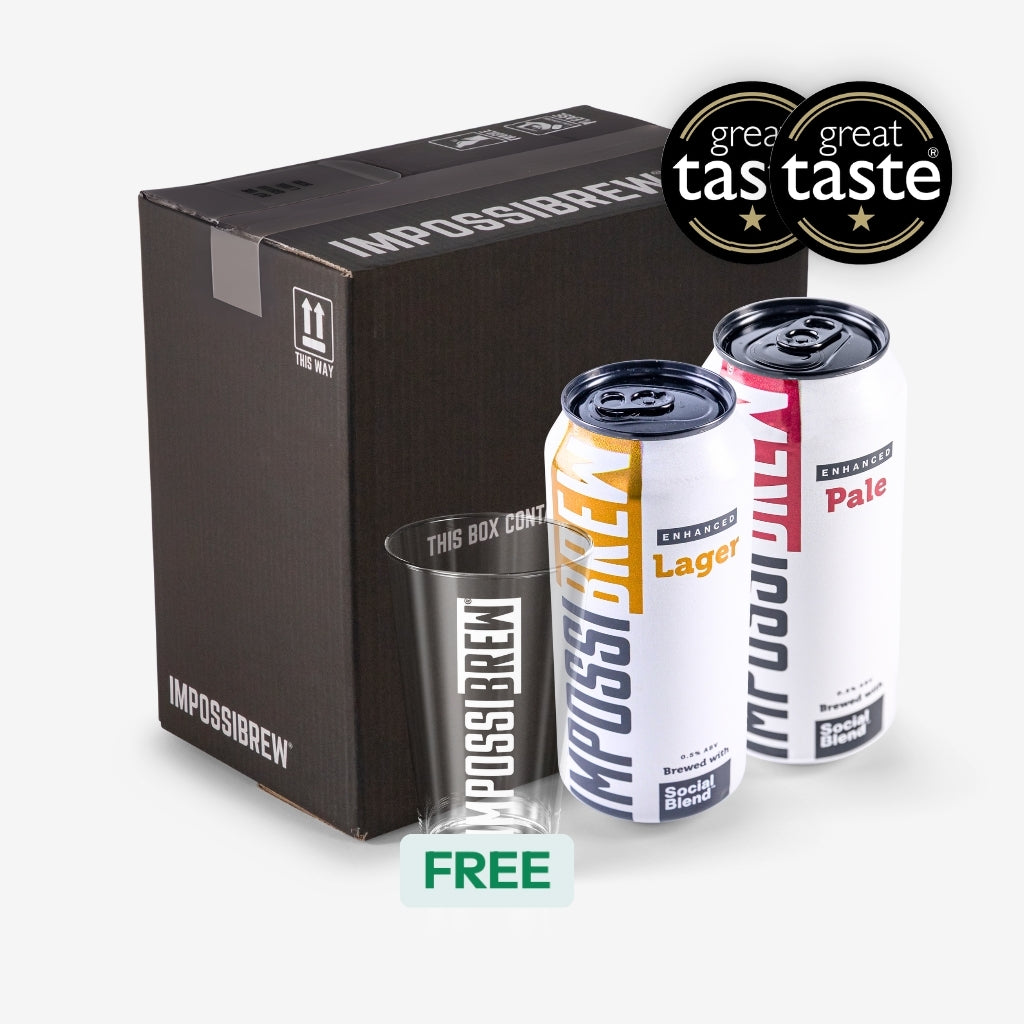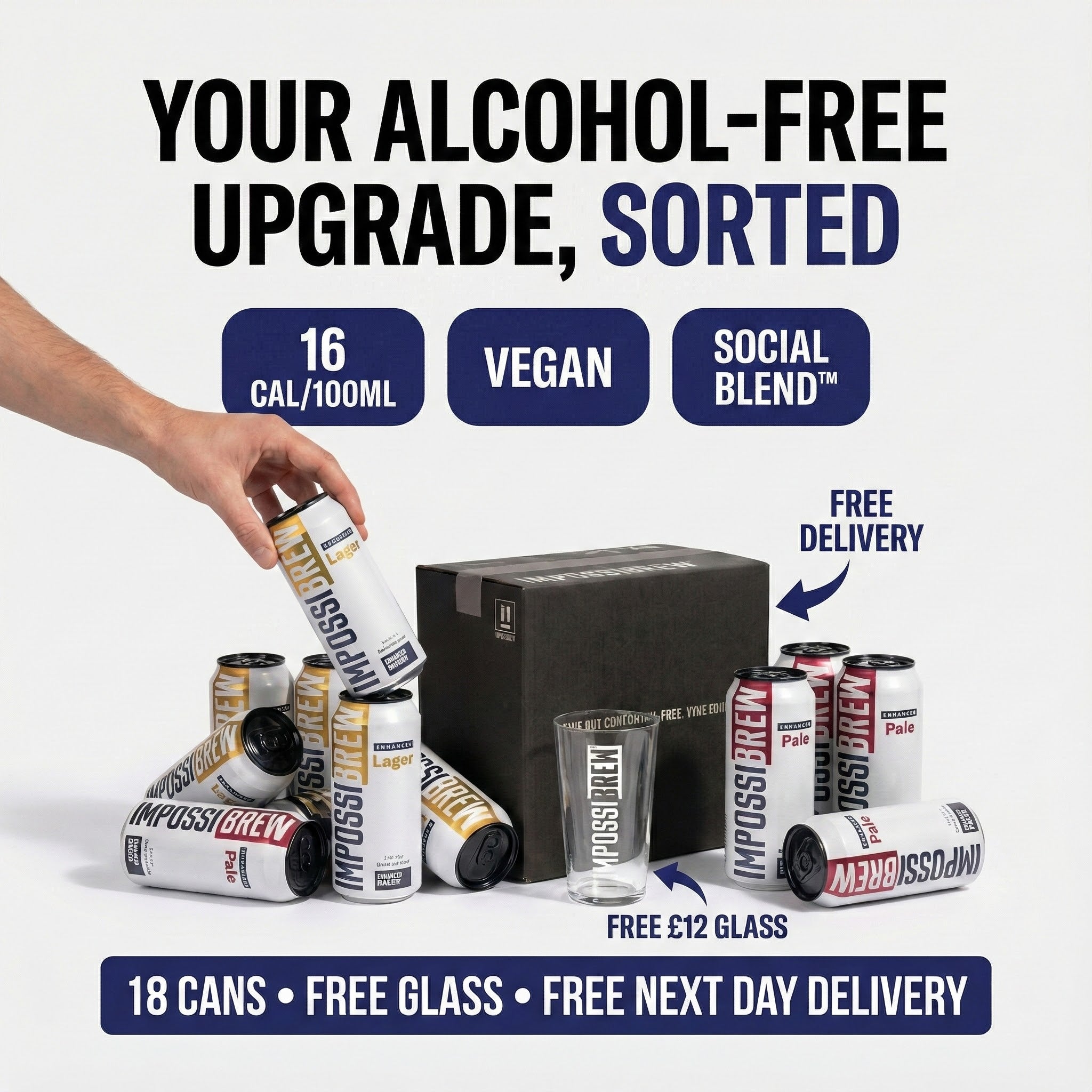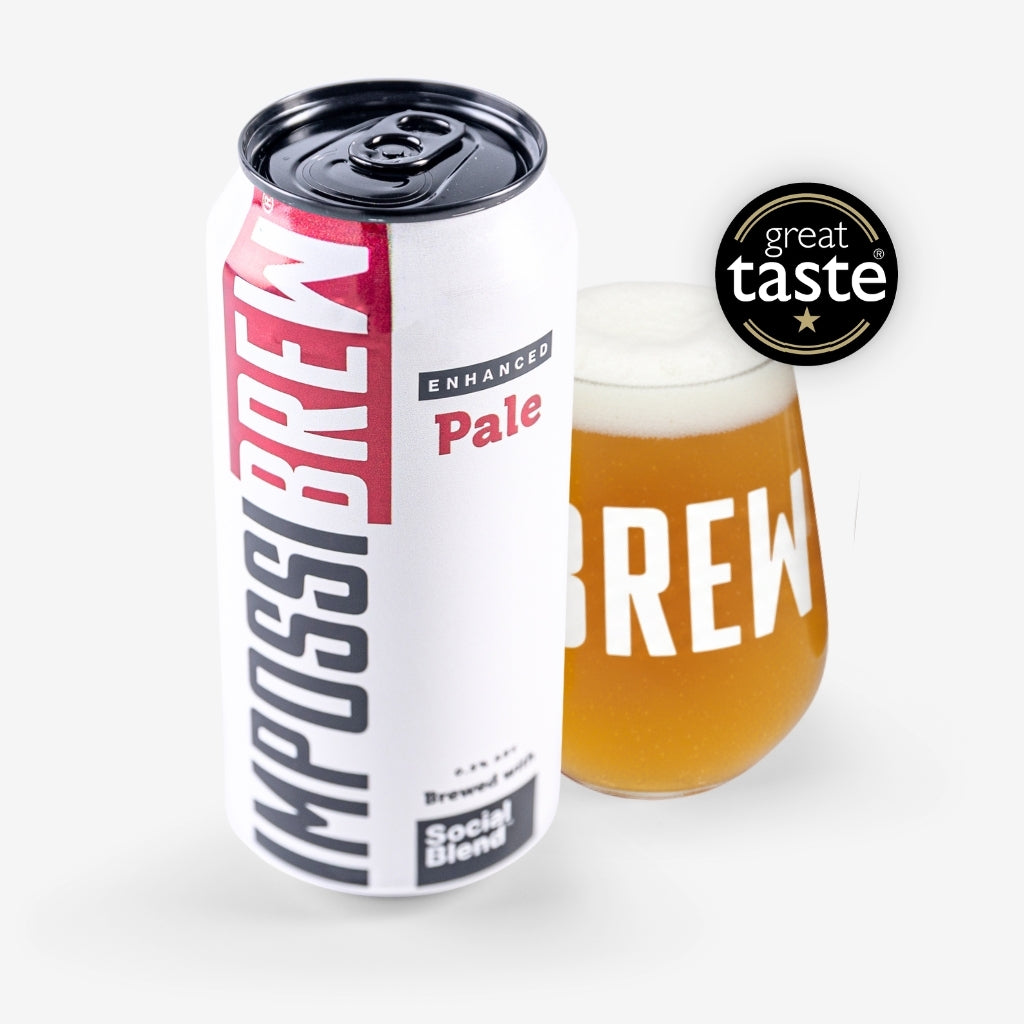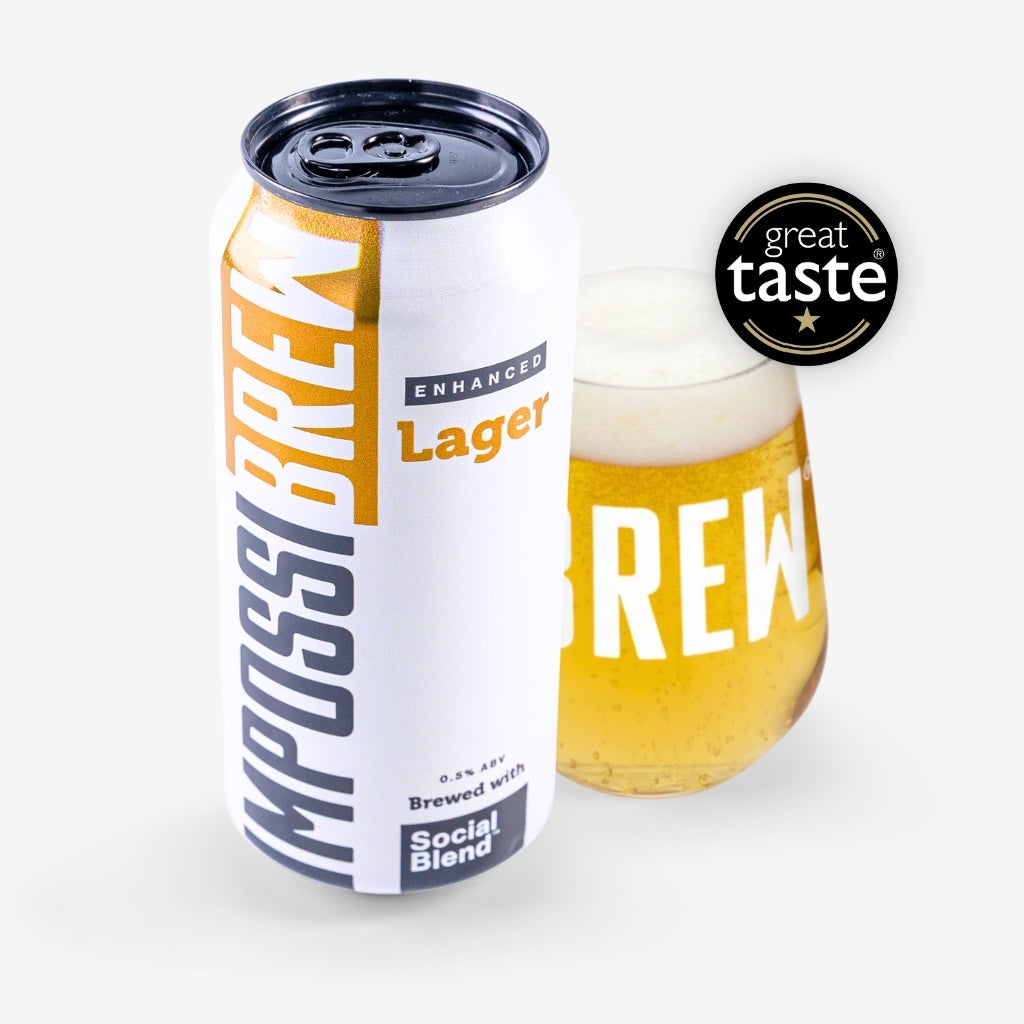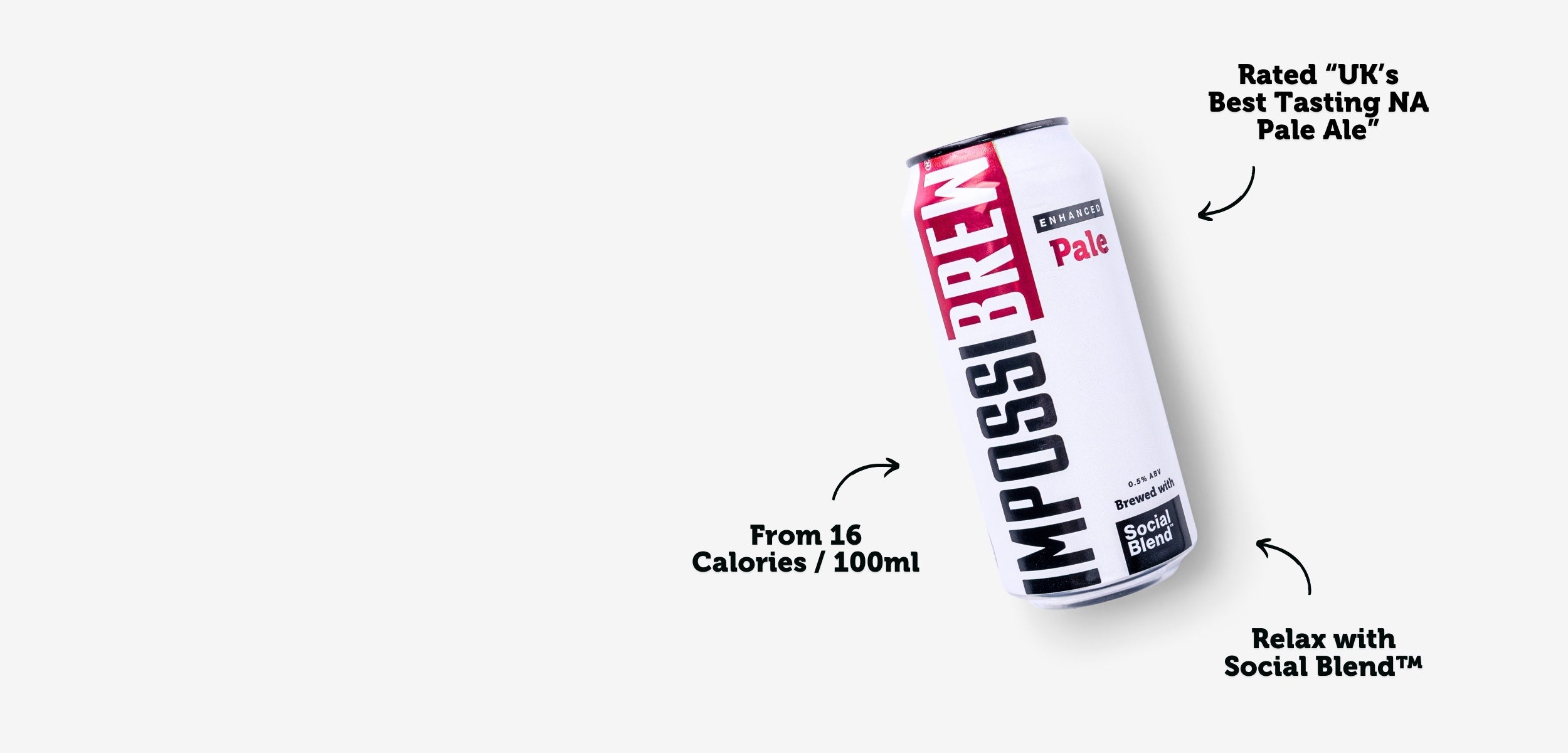Carbonation makes or breaks the taste and feel of non-alcoholic beers. It impacts flavor, aroma, and mouthfeel, but getting it right is tricky. Here's what you need to know:
- Why It Matters: Proper carbonation balances flavors, enhances aroma, and creates a satisfying texture.
- Challenges: Too little carbonation feels flat; too much can overpower delicate flavors.
- Ideal Levels: Non-alcoholic beers typically aim for 2.2–2.8 volumes of CO₂.
- Fixing Issues: Over-carbonation? Reduce pressure or purge gas. Under-carbonation? Adjust CO₂ levels and storage conditions.
Quick Overview
| Problem | Solution |
|---|---|
| Over-carbonation | Lower pressure, purge gas, or degas bottles |
| Under-carbonation | Adjust CO₂ pressure, stabilize temperature |
| Storage Issues | Keep beer at 38°F to maintain CO₂ levels |
Carbonation isn't just fizz - it's essential for creating a great drinking experience. Learn how brewers fine-tune it for non-alcoholic beers.
How To Carbonate a Beer Commercially or at Home
How to Measure and Control Carbonation
Precise measurement is crucial for adjusting carbonation levels effectively, especially when dealing with non-alcoholic beers.
Carbonation Measurement Methods
Monitoring CO₂ levels accurately ensures consistent beer quality. Breweries rely on both analog and digital tools for this task. For instance, the CO₂EASY CO₂ Measuring Device can measure pressure from 0–90 psi and monitor temperatures between 32–120°F . To achieve the best results, brewers measure pressure and temperature simultaneously. For craft and lager beers, the target range is typically 2.4–2.6 volumes of CO₂ .
Required Carbonation Equipment
To control carbonation effectively, brewers use specialized tools, including:
| Equipment Type | Purpose | Key Features |
|---|---|---|
| Pressure Gauges | Monitor CO₂ pressure | Accurate within 1.5 psi |
| Temperature Sensors | Track beer temperature | Range: 32–120°F |
| Carbonation Stones | Dissolve CO₂ efficiently | Available in various sizes |
| Control Systems | Automate CO₂ injection | Includes digital monitoring |
The Pentair Carbonation Control System is an example of how these tools can be integrated for modern brewing needs .
Steps to Change Carbonation Levels
Here’s how to address under- or over-carbonation:
-
Initial Assessment
Use calibrated tools to measure the current carbonation level. Keep the beer at a steady temperature (around 41°F/5°C) for optimal CO₂ absorption . Note that the minimum detectable carbonation level is 0.6 volumes of CO₂ . -
Pressure Adjustment
Start at a lower pressure and increase gradually to avoid over-carbonation. A carbonation chart can help you determine the right pressure needed to hit your target CO₂ volume .
"Carbonation is an important sensory property for the acceptability of many beverages because it elevates aroma and produces an appealing mouthfeel often described as 'tingling'" - Xuwei Song, Nicholas Wendrick, Charles A. Sims, and Andrew MacIntosh .
For non-alcoholic beers, forced carbonation is preferred over natural methods to avoid unwanted fermentation . Maintaining a stable temperature throughout the process is essential. These steps help resolve the carbonation challenges discussed earlier.
Methods of Beer Carbonation
Using Force Carbonation
Force carbonation allows brewers to control CO₂ levels with precision, reducing the risk of fermentation when producing non-alcoholic beers .
Here’s the equipment you’ll need:
- Food-grade CO₂ cylinder: Supplies the gas.
- Gas regulator: Manages pressure.
- Pressure-rated keg: A sanitized container for the beer.
- Optional temperature controller: Keeps the beer at the ideal serving temperature.
To begin, chill the beer to 38–41°F before injecting CO₂. Using a carbonation chart, apply the correct pressure. For example, 10 PSI typically achieves 2.4 volumes of CO₂ at 38°F .
Natural Carbonation Process
Natural carbonation involves adding fermentable sugar so the residual yeast produces CO₂. However, this method is usually avoided for non-alcoholic beers due to the risk of unwanted fermentation . Brewers can use filtration or pasteurization to stop yeast activity if needed.
Force vs. Natural Carbonation
Choosing between force and natural carbonation depends on factors like efficiency and consistency. Force carbonation is quicker, offers precise control, and minimizes fermentation risks. On the other hand, natural carbonation takes longer, can lead to inconsistent results, and may leave yeast sediment.
| Aspect | Force Carbonation | Natural Carbonation |
|---|---|---|
| Speed | Faster process | Slower process |
| Control | Exact CO₂ levels | Less predictable |
| Risk Level | Low fermentation risk | Higher fermentation risk |
| Clarity | Clear beer | May leave sediment |
| Cost | Higher initial expense | Requires less equipment |
Different beer styles call for specific carbonation levels. For instance, American Lagers typically need 2.5–2.8 volumes of CO₂, while Wheat Beers often require 3.0–4.0 volumes . These methods let brewers adjust carbonation to match each style perfectly.
sbb-itb-a752bf8
Carbonation Levels for Different Beer Styles
CO₂ Levels by Beer Style
Each beer style requires specific carbonation levels to achieve its signature taste and texture. For example, lagers often have slightly higher carbonation than some ales, giving them a crisp, refreshing quality. Here's a breakdown of the ideal carbonation ranges for popular beer styles:
| Beer Style | CO₂ Range (volumes) | Characteristics |
|---|---|---|
| American Lagers | 2.5–2.8 | Crisp, refreshing |
| Pilsners | 2.4–2.8 | Light, effervescent |
| Pale Ales | 2.3–2.8 | Balanced, smooth |
| Stouts (Dry Stout) | 1.8–2.5 | Creamy, rich |
| Dark Lagers | 2.5–2.9 | Full-bodied |
These ranges are carefully chosen to enhance the sensory qualities of each style, as detailed below.
How Carbonation Affects Taste
Carbonation does more than just add fizz - it plays a big role in shaping a beer's taste and mouthfeel. Mandy Naglich, a beer expert, puts it perfectly:
"Carbonation is usually the first element of mouthfeel you'll notice because all those bubbles get to dancing on your tongue and really make you FEEL something"
Here's how carbonation impacts taste:
- Hop Bitterness and Acidity: Higher carbonation levels can make hop bitterness and acidity more pronounced.
- Body Balance: In lighter beers, carbonation offsets the lack of body, creating a more satisfying texture.
- Aroma and Flavor: Carbonation helps release aromas, boosting the intensity of flavors.
Meeting Consumer Taste Preferences
Since carbonation directly shapes a beer’s taste and mouthfeel, getting it right is crucial for satisfying consumer expectations. Several factors influence this balance:
- Temperature Matters: Cold beer (around 38–41°F) retains CO₂ better, keeping the carbonation intact. Warmer beer releases gas faster, altering the drinking experience.
-
Style-Specific Adjustments:
- Light lagers thrive with higher carbonation (2.5–2.8 volumes) for a crisp finish.
- Pale ales strike a balance with carbonation levels between 2.3–2.8 volumes.
- Stouts, like dry stouts, shine with lower carbonation (1.8–2.5 volumes), enhancing their creamy texture and rich malt flavors.
Force carbonation ensures precise CO₂ control, delivering consistency and safety . Additionally, higher carbonation during packaging can improve both the sensory experience and the product's safety .
A great example of this approach is IMPOSSIBREW®’s Enhanced Lager. By carefully managing carbonation, they create an alcohol-free beer that still offers the refreshment and flavor beer lovers expect.
Fixing Common Carbonation Problems
Too Much Carbonation
Too much carbonation can negatively affect the taste and texture of non-alcoholic beers. Common causes include:
- Adding too much priming sugar during bottling
- Packaging before fermentation is complete
- Incorrect CO₂ regulator settings for kegs
- Enzymes from hops continuing to convert residual starches into sugars after packaging
A study from Oregon State University, published in the Journal of Agriculture and Food Chemistry in 2018, highlighted how hop-derived enzymes can unexpectedly increase carbonation levels .
If you're dealing with over-carbonation in kegged beer, try the following:
- Lower the regulator pressure.
- Purge the keg's headspace.
- Gently shake the keg.
- Let the keg rest before reconnecting it at a reduced pressure .
For bottled beer, you can:
- Keep the bottles refrigerated for longer periods.
- Carefully degas and re-cap the bottles .
Too Little Carbonation
On the flip side, insufficient carbonation can leave non-alcoholic beer tasting flat with poor head retention. Fixing this requires pinpointing the root cause . Here's a quick guide:
| Issue | Symptoms | Solution |
|---|---|---|
| Temperature Issues | Flat taste, poor head | Store at a steady 36–38°F consistently. |
| Pressure Problems | Weak fizz, low carbonation | Adjust CO₂ pressure to match the beer style. |
| Equipment Issues | Uneven carbonation levels | Clean draft lines and check for leaks. |
| Storage Problems | Gradual carbonation loss | Ensure proper seals and monitor temperatures. |
Maintaining CO₂ Levels in Storage
Proper storage is crucial for keeping CO₂ levels stable and ensuring the beer stays fresh. Temperature plays a big role - aim to store beer at a steady 38°F .
Here are some best practices for long-term storage:
- Clean draft lines every two weeks.
- Regularly monitor gas pressure and gas mixture ratios.
- Use nitrogen separators for the ideal gas blend.
- Keep storage temperatures consistent.
Many breweries also capture and reuse CO₂ produced during fermentation. This not only helps maintain carbonation but also reduces environmental impact . For packaged products, slightly higher CO₂ levels can even extend shelf life by reducing excess oxygen .
Conclusion: Getting Carbonation Right
Key Insights About Beer Carbonation
Crafting the perfect carbonation in non-alcoholic beers requires careful oversight. Higher CO₂ levels during packaging improve both flavor and safety . Since alcohol isn't present to enhance mouthfeel or act as a preservative, brewers need to strike a balance between carbonation, malt sweetness, and hop bitterness .
Maintaining cold storage, ideally at 38°F, helps preserve CO₂ levels . Force carbonation through CO₂ kegging is the most dependable method, as it avoids the risks associated with fermentation .
To achieve consistent carbonation, brewers rely on these essential steps:
- Filtering out residual yeast
- Using pasteurization to control microbes
- Applying preservatives strategically
- Keeping storage temperatures low
- Monitoring gas pressure closely
These practices form the backbone of successful carbonation methods, paving the way for creative advancements by leading brewers.
IMPOSSIBREW® and the Rise of Modern Non-Alcoholic Beers

Modern brewers like IMPOSSIBREW® showcase how precise carbonation techniques can elevate non-alcoholic beers. Their Enhanced Lager and Enhanced Pale Ale earned recognition as the UK's Best Non-Alcoholic Beers at the 2023 World Beer Awards . Additionally, 71% of customers reported feeling more relaxed after enjoying these drinks . This highlights how combining meticulous carbonation with innovative ingredients can create satisfying alternatives to traditional beers.
For commercial brewers, a strong quality control system is essential to ensure top-notch results:
| Control Point | Purpose | Impact |
|---|---|---|
| Filtration | Removes yeast | Prevents unwanted re-fermentation |
| Temperature | Ensures storage stability | Maintains CO₂ levels |
| Pressure monitoring | Oversees carbonation | Delivers a consistent mouthfeel |
| Gas mixture ratios | Manages bubble size | Enhances sensory experience |

